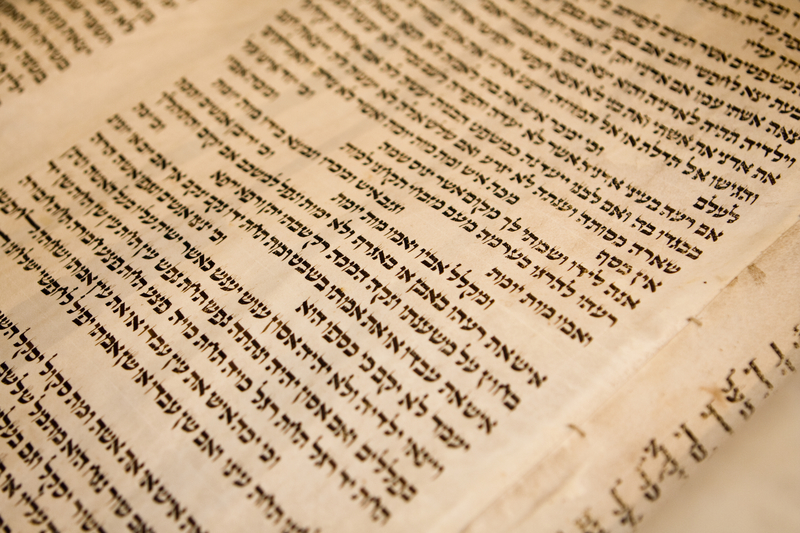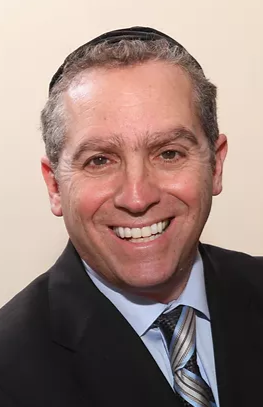
Perashat Vayera begins with Avraham recovering from the Brit Milah that Hashem commanded him to carry out on himself and his household. It was on the third day when the pain was at its worst that Hashem visited Avraham to show him honor for carrying out the Mitzvah and to acknowledge that he had elevated himself to a new spiritual level through the Brit Milah. Perashat Vayera is the epitome of the Torah’s Mitzvah of Hachnasat Orhim [hospitality]. Avraham excelled at this Mitzvah. He was a master of kindness and a host par excellence.
Rabbi Frand quotes Rav Nissan Alpert zt”l, who offered a number of beautiful insights into the Mitzvah of Hachnasat Orhim which can be derived from this Perashah. Rashi explains that to provide Avraham some respite from guests after his recent Milah, G-d made it an exceptionally hot day so that no one would be traveling on the roads. However, Avraham was distressed that he had no guests to whom to offer hospitality to.
Therefore, G-d sent him three Angels in disguise. Angels are completely spiritual beings who did not need and could not eat the meal that Avraham would provide for them. However they pretended that they were eating the food. So if Avraham was so distressed that Hashem decided to send guests so that Avraham would have someone to feed, why did G-d send Angels who could not really eat? He could have just sent a thunderstorm that would have cooled off the temperatures. People would then have resumed their travels. A poor person would inevitably have come down the road and Avraham could have invited him in for a meal. This would seem more logical than wasting Avraham’s supreme efforts preparing a gourmet meal for the Angels to then pretend to eat!
This incident teaches us about the nature of hospitality. Contrary to what we may think, Hachnasat Orhim is not so much a Mitzvah for the benefit of the guests or the poor person. Rather, it is a Mitzvah for the benefit of the host! The Mitzvah is directed at the giver, not the receiver. More than the host providing for the guests, it is the guests who provide for the host. Hashem has His ways regarding charity and acts of kindness.
If someone needs food, G-d will get it to him. If an individual or an institution needs money, G-d will ensure they are taken care of. He has His ways. The only question is who will have the merit of providing the charity. This is why the primary chapter of Hachnasat Orhim in the Torah is told about people who did not even need it.
The lesson is that the host should always remember that he is the one who needs this Mitzvah. He should not think that he is doing his guests such a big favor. Ultimately he is doing the favor for himself.
Or HaHayyim adds to this and says that when people carry out great deeds, Hashem shows himself to that person as a token of tribute and acknowledgment to that individual for recognizing Hashem in a difficult time. I can personally remember many times when I did something that was difficult for me and Hashem showed this principle to me in a way that I was able to understand.
There was one time, a Rabbi came to visit me in my office who needed to raise money for his Yeshivah. He asked me for an amount that I felt was more than I would be willing to give. But I felt deeply for his cause, so I decided to push myself to accommodate his request. I remember going back from the conference room where we were meeting to my office to get my checkbook. It was at that exact moment that a call came in from a person whom I’d been speaking to about purchasing life insurance.
I picked up the phone and the person calling said: "Hi Jack, I'm ready to buy that insurance we've been discussing, when can we meet?" Right then I saw clearly how Hashem would reward me for doing that Mitzvah on the spot. The connection was so obvious to me. Hashem wants to show us that because we did something that was difficult for us, we will be rewarded. He says, I will reward you quickly so that you will understand that I recognize your sacrifice of going above and beyond in order to do the will of Hashem by doing that Mitzvah that was difficult for you.
We learn from Avraham Avinu, and from all these acts that we do, to show our faith in Hashem, so that He will acknowledge our efforts. To illustrate this idea even further, Rabbi Prague told us a story that took place when he was visiting some friends in Russia, back in the '80's, when Russia was still under communist rule. He told us of the Mesirut Nefesh (self-sacrifice) that the Jews there had to live under. They had to walk for hours in the freezing cold to find a Minyan in hidding where they could pray. They were always worried that they might get caught at every turn but they persevered to do the will of Hashem.
Many years later when they were living in Israel and were able to keep their Shabbat and the Mitzvot without fear, Rabbi Prague told them that he was jealous of them. He said because even though now that they were free, living in Israel, and obviously didn't have to undergo the same hardship in order to keep the Mitzvot, they were still rewarded and would be for the rest of their lives, as if they were still living under those harsh conditions that they had to endure in the past.
This week’s Zohar takes it a step even further and says that if Has veShalom there’s a decree on a person and if Hashem loves that person, then He will send him a poor person at the precise moment in order to give that person a merit so that he might be saved from a possible disaster. There’s a well known story of a wealthy businessman who had his office on one of the top floors in the twin towers. An old man who usually collected charity from this man called him on the morning of Sept 11th, 2001 from the lobby of his building to get permission to come up and pick up a tzedakah check from him.
The businessman realizing that this was an older man calling him and it was difficult for him to come up to his office, decided to meet him with his check in the lobby instead. While he was downstairs in the lobby meeting with the old man, was the precise moment when the first plane struck the first tower where his office was located! So we can see how Hashem sent this old man at the exact moment in order to give the businessman a merit which would ultimately save his life.
Later, at the end of the Perashah, this theme continues as Hashem tells Avraham to sacrifice his only son Yitzhak. Avraham, being the giant of Hesed that he was, had to go totally against his nature. He was able to set out with the intention of fulfilling this request of Hashem without hesitation, unaware that it was only a test. We as the children of Avraham are still benefiting from this merit to this very day!
We all have times in our lives when we make decisions to do Mitzvot that are difficult for us. We have to know that those acts don't go unnoticed and more than that, we will get rewarded for the rest of our lives for doing that Mitzvah at the same level as when we first did them, when it was so much more difficult for us.
May we all learn from our forefather Avraham Avinu to always look for ways to do Mitzvot as the Torah commands us, which of course includes helping another Jew in need no matter how difficult it may be. We must also know that whether we're aware of it or not, Hashem will reward us according to the difficulty of that Mitzvah, and the key is that He will continue to regard us as being at that high level, even if it becomes easier for us in the future.
Parasha perspective By Jack E. Rahmey from the teachings and guidance of Rabbi Amram Sananes.








